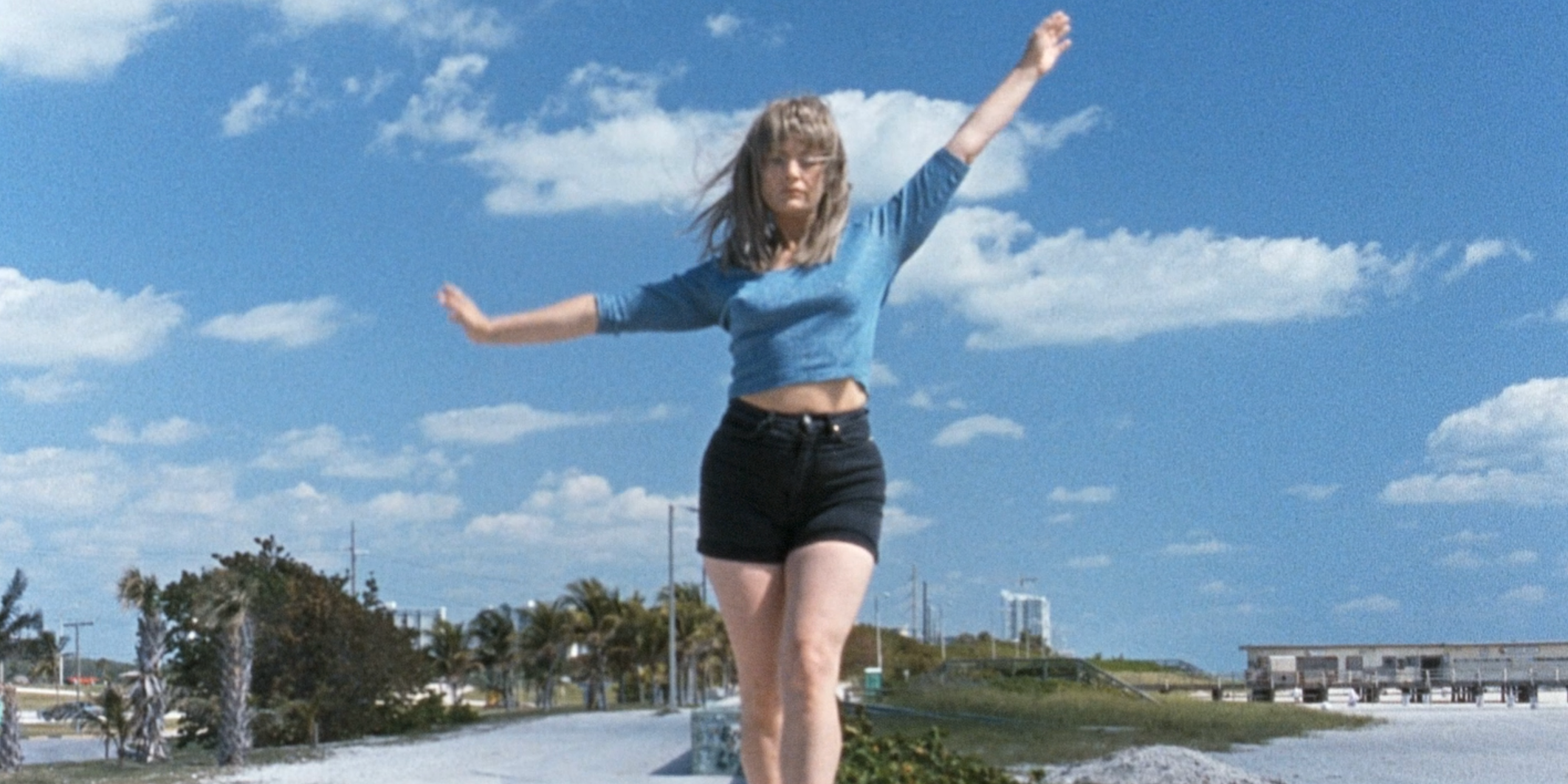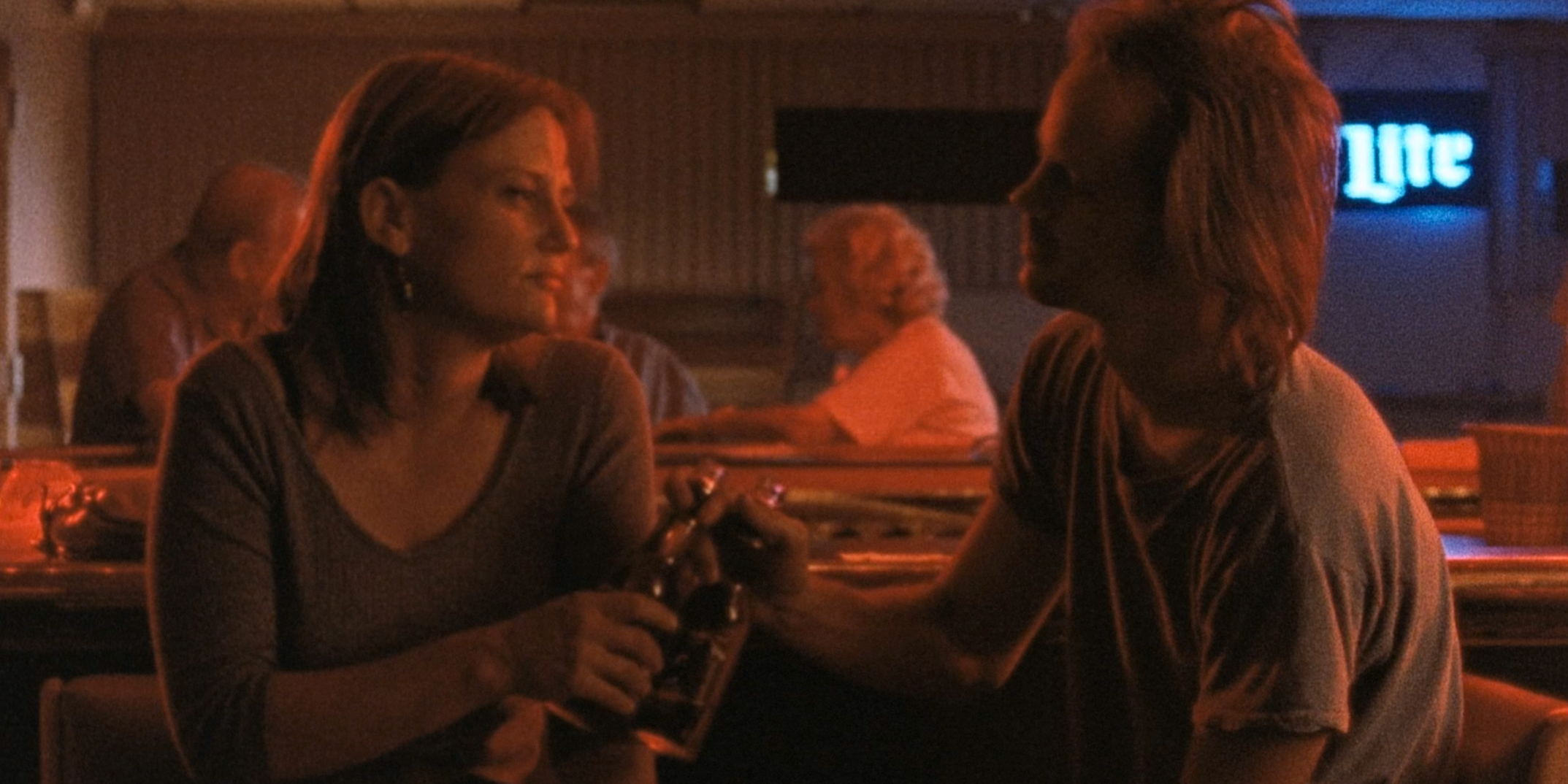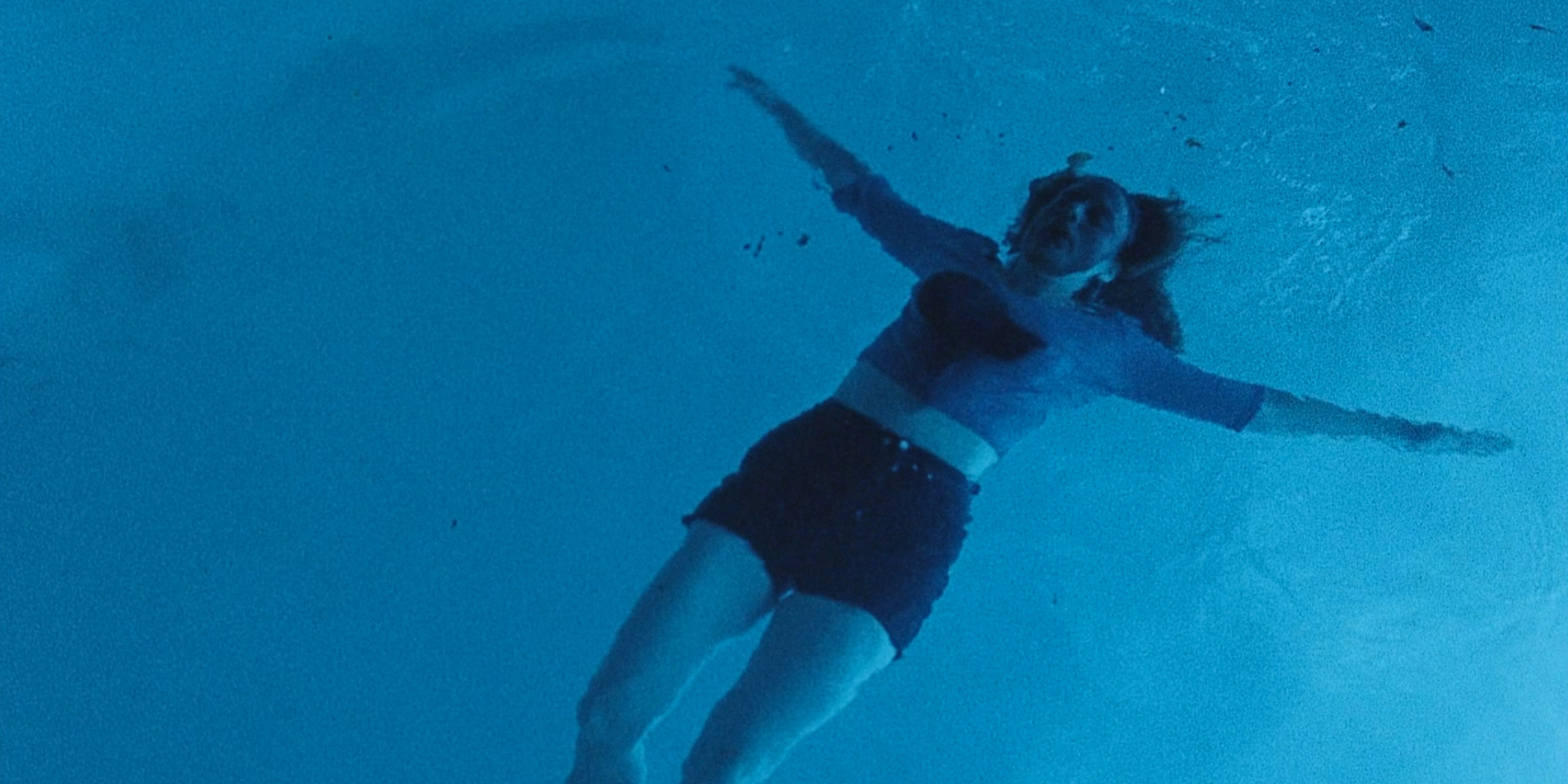Revisiting Kelly Reichardt’s Debut, RIVER OF GRASS

Alex Lei is a writer and filmmaker with a BA…
Those citing 1994 as the “greatest year in cinema history” don’t often stray far from the mainstream, and when they do, they might go on to sight seminal art-house works like Sátátangó or Chungking Express, or perhaps the growth of the DIY indie scene with the premiere of Clerks. Almost never cited, however, is the debut of one of 2000s greatest auteurs Kelly Reichardt.
That year, Reichardt premiered her first feature, River of Grass, to a crowded and exciting Sundance Film Festival. It was a movie that should have captured the zeitgeist, both in the resurgence of Bonnie and Clyde-style lovers-on-the-run movies in the 90s, and the post-Slacker indie-is-everywhere moment. However, Reichardt’s stylistic and thematic interest stand in opposition to the sexier aspects of that moment, and perhaps River of Grass’s attempt to break down the romanticism of both these ideas led to its life of obscurity.
A Mundane Life of Crime
Following the tedious and lonely life of Cozy (Lisa Donaldson), the film opens with her romantic narration over archive images, telling us of her birth, jazz drummer-turned-cop dad, and the rest of her rather unremarkable life up to that point. Almost out of a sense of boredom, she got married and had kids, although feels alienated by her working husband and strangers of children, “I’ve heard it said that the mother-child bond begins at birth, for me this never occurred, and on some days I’d sit at my window for hours, just waiting for a nice couple in a big station wagon to take them away.”

She fills her days trying to find meaning, doing gymnastic poses or figuring how many hours she’s been alive and how many are left. She muses, “…I wondered if there was anyone else on this planet as lonely as me. As it turned out there was, and he was living just a county away”.
This someone is Lee, played by a young and always kooky Larry Fessenden, a dead-beat who can’t get himself out of his grandma’s house. He’s already has a connection to Cozy he doesn’t even know yet—his buddy found a revolver on the side of the road, and gave it to him to sell, which we’ll know it’s the gun that Cozy’s dad lost.

Fed up one night, Cozy gets dressed up and goes over from Broward to Dade County, almost getting hit by a car on the way to the bar. Turns out the driver was Lee, and he offers to buy her a beer. After a few Millers and some drunken philosophy, Lee offers to take her for a swim at his “friend’s” pool. Floating in the water, she sees Lee checking out the gun, and takes interest in it. In a surprisingly intimate moment for a rather Brechtian film, she cozies up to Lee and he wraps his arms around her, placing her hands on the gun. In a flash, someone comes out of the house, startling the couple, and firing the gun. They’re back over the fence before she can grab her purse or shoes.
Existential on the Run
These are not the romantic, fame-obsessed outlaws like that of Arthur Penn (or Quentin Tarantino and Oliver Stone, for that matter), but a couple of people looking for purpose, an existential road movie taking more of its influence from Badlands than Bonnie and Clyde. Cozy’s romanticized narration feels ripped straight from the pages of Terrence Malick’s debut, with the characters imagining what the world is thinking of them without ever really interacting with it, “Did you ever wonder what it’d be like seeing your whole life play out on TV, knowing the whole world is lookin’ for ya?”

Cozy’s narration comes with more than a tinge of irony, as she is describing the crime spree they’re on but it is overlaid with scenes of Lee stealing clothes from a laundromat or shoplifting a wig. These latter portions of the film play out less like a crime-filled road-trip across the heartland of the United States and more like a Godard film, down to the over-the-top inter-titles saying what day of the crime spree they’re on, punctuated by a bullet hole and gunshot sound. But whereas Godard is willing to visually follow his characters on their fantasies, Reichardt only lets it play out internally for her heroin.
Even after Lee figures out that they didn’t kill or even injure the man, he still tries to enact the fantasy that they did, keeping Cozy in her head for his satisfaction. Reichardt is not feminizing the road movie à la Thelma and Louise, instead she’s putting a feminist lens on the tropes that are readily portrayed in the genre: if you’re gonna be lonely, why not do it with a companion and some stakes? Cozy’s realization of her manipulation leads to a startling conclusion where it seems like everything could change, but as she put it earlier, “It’s funny how a person could leave everything she knew behind and still wind up in such a familiar place”.
Where’d She Go?
The irony and playfulness Reichardt has on full display here are never found again in her work, in part because, as she put it, “We moved into the Bush era, and it got f*cking depressing,” but also because there were limits to what she could say in being ironic. River of Grass was and still is a fresh take on the crime genre, but its refusal to take itself seriously ultimately keeps it from having the impact that Old Joy or Wendy and Lucy have. While her romantic characters still exist, she never allows us to get so internal with them again. The distance in her later films, in a way, pulls us closer to the characters, allowing us to project more onto them, but River of Grass‘s internal nature acts as an insight into her later, more ambiguous works.
In 1994, however, there was no way of predicting this film’s eventual auteurist significance. Critics recognized it was a special film, it was, after all, up for the Grand Jury Prize at Sundance and three Independent Spirit Awards. But while there was an audience for flashy and funny crime films like Pulp Fiction, the niche for a feminist Godardian genre bender like River of Grass was much smaller. The funding for Reichardt‘s second project fell through, and she fell into obscurity for over a decade, couch surfing and making 8mm shorts until her triumphant comeback in 2006.
While it would take the serious alienation of the Bush era for her messages to resonate with broader indie audiences, River of Grass has all of the seeds that would bloom into one of the 2000s greatest filmmakers.
Have you seen River of Grass? How does it stack up to Reichardt’s other films? Let us know in the comments below!
Does content like this matter to you?
Become a Member and support film journalism. Unlock access to all of Film Inquiry`s great articles. Join a community of like-minded readers who are passionate about cinema - get access to our private members Network, give back to independent filmmakers, and more.
Alex Lei is a writer and filmmaker with a BA in Film with a minor in Philosophy from Montana State University, focusing his thesis on post-Stalinist Soviet filmmaking. Currently based in Baltimore, MD, he's a fan of Russia, cowboys, and sometimes Russian cowboys.













